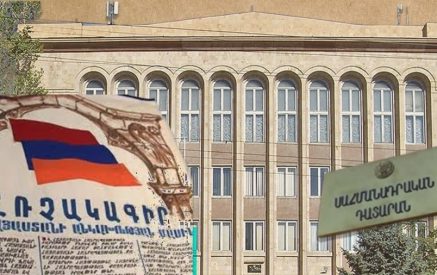An interesting story happened in Germany. Last year, the President of Germany, Joachim Gauck, speaking to schoolchildren, has called the members of the National Democratic Party (actually, neo-Nazis) Spinner, a word that can be translated as “stupid”, “immature”, “goofy”, in short, a not so much adequate person. The right radicals got offended and appealed to the Constitutional Court that the President, according to the German Constitution, should be neutral and refrain from labeling any party.
The President really has no right to interfere in Germany’s current policy, he is a representative figure, he meets with foreign delegations, admits parades, signed laws, which actually he cannot, but sign. However, he can be expressed about this-or-that national significance matters, and his word has quite a lot of weight. And look what the Constitutional Court has decided: the president’s word was not a personal insult and was addressed to the people who, according to the context of his speech, have not learned the lessons of history, and in spite of national-socialism catastrophic consequences, they continue propagating right radical ideas. Consequently, Gauck had the right to use such a word. In fact, in the 2013 parliamentary elections (and in the case of parliamentary government system, they, as you know, are the most important), the German National Democratic Party gained 1.3 percent vote and did not pass the Bundestag.
What this story says about. It says not only about the fact that the president of Germany is entitled to enjoy the freedom of expression, when it comes to not personal, bit political accusation. There is a more important issue. There is a certain consensus in the society about this country’s not far away past. Not only the law bans the national-socialism, but also the great part of the citizens, consciously and openly reject it, and its even a remote hint is almost unanimously rejected. People, their fathers and grandfathers, were “burnt out” about Nazism, now they no longer want recurrence.
This is one of the manifestations of the state maturity. There should be some public consensus about some issues, which is missing in Armenia. Not only a law imposed from the top, but also its conscious perception. As we saw, there is a blatant disagreement about our communist past, which was expressed, for example, in the heated debates about Mikoyan’s statue. No law (let’s say, on lustration) will help this agreement; it should mature on a conscious level.
Read also
Of course, this is not the most urgent problem of Armenia. It is more important for us to reach a consensus on the issues of legality and legitimacy. (Although this, however, is associated with the previous issue; if it was possible to execute by shooting millions of innocent people, then everything is possible). There is no consensus about legitimacy in our country, ranging from the simplest things, and ending with “the top ones.”
I am a pedestrian. When I come to zebra crossing, I am waiting for the green light, like any German pedestrian would do. Waiting takes maximum 3-4 minutes. In the meantime, people appear who consider themselves as more privileged or “agile” than I, and they run under the “red” light. Another few people, seeing these “agile”, do not want to be less “watchful eye” (“What makes them good of me?”) and are running behind the first ones. I keep standing with some “simple-minded” like me until the green light is on.
When you say, drive your car following the laws and you will not be sanctioned, there are always “people sharing the sufferings of the nation”, who say, “how can these poor people pay the fine?”, “Well, did you see the other day what the jeep did? Definitely he will not be sanctioned.” When you say that the official should not take bribes, there are always “conscious” people, who say, “Well, how can this poor man avoid taking? How he can support his family? Poghos and Kirakos take 10 times more than he.” When you say the big taxpayers to “pay taxes”, they (of course, not officially) say, “Why should I pay, let Poghos pay, and I will pay, but we know that Poghos is close to Petros, therefore he will never pay”.
Now when the public officials fabricate the elections and get to their chairs through fighting and struggling, should we keep saying, “How shouldn’t this poor people avoid fabricating? They want power, don’t they?” Here is what it means lack of consensus about legitimacy.
ARAM ABRAHAMYAN






















































